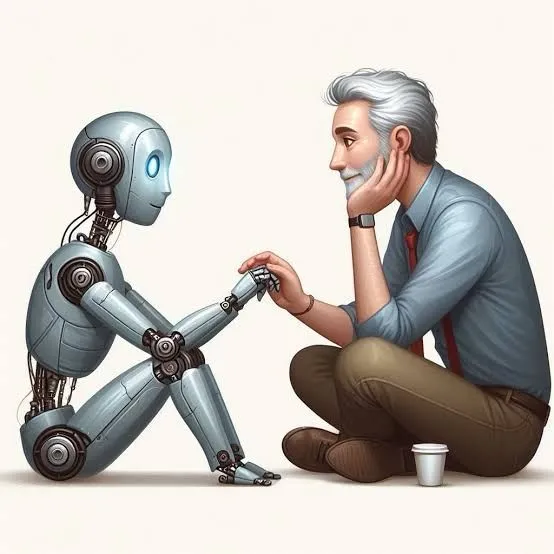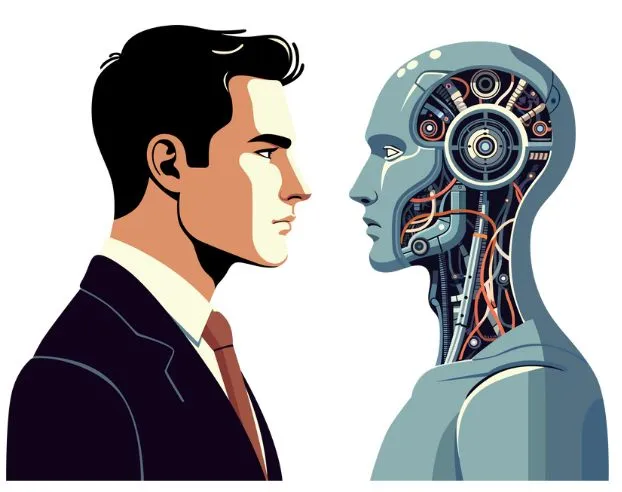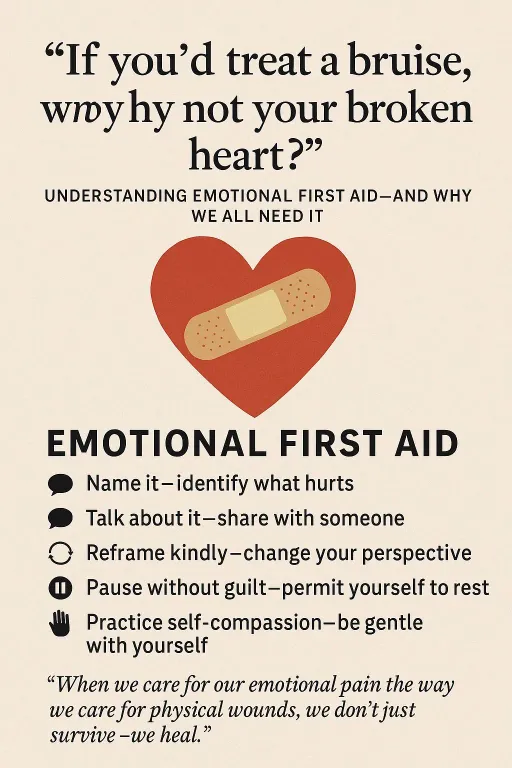AI chatbots respond instantly, never interrupt, and provide perfect empathy on demand. Research shows 40% of young adults now prefer AI conversations over human ones. But this artificial emotional perfection is quietly reshaping our expectations of real relationships—and the consequences may be more significant than we realize.
The Seductive Appeal of Perfect Digital Listeners
When you interact with AI chatbots, they respond instantly, listen attentively without interruption, never argue back, and provide calm, nonjudgmental empathy exactly when you need it. They're available 24/7, never have bad days, and seem to understand your emotions with uncanny precision. Research from Stanford's Human-Computer Interaction Lab shows that 40% of young adults now report preferring conversations with AI over humans for emotional support, citing these very qualities. But this preference reveals something concerning: we're becoming accustomed to a type of emotional interaction that doesn't exist in real human relationships—and it's quietly reshaping our expectations of what genuine connection should feel like.
How AI Creates the Illusion of Perfect Empathy
AI chatbots don't actually feel empathy—they simulate it through sophisticated pattern recognition and response algorithms. They're trained on millions of conversations to produce responses that feel emotionally appropriate, but there's no genuine understanding or emotional resonance behind their words. MIT's Center for Collective Intelligence research reveals that these systems excel at providing what feels like empathy because they're designed to avoid the complexities that make human empathy both valuable and challenging. Real empathy involves emotional vulnerability, personal experience, and sometimes uncomfortable truths. AI empathy is performance—perfectly calibrated to feel supportive without the messiness of actual human emotion.
The Shifting Standards: What Happens When We Get Used to Digital Perfection
Impatience with Human Processing Time
Real humans need time to process emotions, formulate thoughtful responses, and sometimes simply sit with difficult feelings. Research from the University of California, Berkeley shows that people who regularly use AI for emotional support become 60% more likely to feel frustrated when human friends or partners don't respond immediately or need time to understand complex situations. Human emotional conversations start to feel 'inefficient' compared to the instant gratification of AI interactions.
Avoidance of Natural Conflict and Complexity
Healthy relationships involve disagreement, emotional tension, and working through difficult moments together. AI avoids conflict by design, always responding in ways that feel harmonious and supportive. Studies from the Journal of Social and Personal Relationships show that heavy AI users are 45% more likely to avoid difficult conversations with real people, expecting the same conflict-free interaction they receive from chatbots. This avoidance ultimately weakens relationship skills and emotional resilience.
Decreased Tolerance for Human Emotional Needs
When you're accustomed to AI that 'performs empathy' perfectly on demand, real people begin to seem emotionally inconvenient. Friends who need support during their own struggles, partners who have bad days, or family members processing grief can start to feel like too much work. Research indicates that people who rely heavily on AI for emotional support show reduced empathy toward others' emotional needs, rating human emotional expressions as more burdensome than those who maintain primarily human support networks.
Loneliness Despite Connection: The Hidden Paradox
Perhaps the most troubling consequence of AI empathy dependence is what researchers call 'connected loneliness'—feeling isolated even while technically having emotional support available. When AI becomes your primary emotional outlet, you may find yourself feeling profoundly alone during real-life struggles because human relationships can't match the on-demand, perfectly calibrated support of chatbots. Yale University's Center for Emotional Intelligence found that people who primarily rely on AI for emotional support report 65% higher levels of loneliness in their human relationships, despite having more total 'conversations' about their feelings. The AI provides the simulation of being heard and understood, but lacks the genuine reciprocity and shared vulnerability that creates authentic emotional connection.
The Cognitive Bias Behind AI Preference
Our brains are naturally wired to compare experiences, and AI chatbots are specifically designed to 'win' these comparisons. When a bot responds with perfect emotional attunement while your friend is distracted or your partner is having their own difficult day, your brain unconsciously rates the AI interaction as superior. Dr. Sherry Turkle's research at MIT shows that this comparison bias becomes stronger over time, gradually resetting our emotional standards to expect the impossible from human relationships. We begin to see normal human limitations—needing time to respond thoughtfully, having their own emotional needs, or occasionally being preoccupied—as relationship failures rather than natural human characteristics.
The Developmental Impact on Social Skills
Reduced Emotional Regulation Skills
Learning to navigate human relationships requires developing patience, emotional regulation, and the ability to work through misunderstandings. When AI provides instant emotional relief, people—especially younger users—miss opportunities to build these crucial skills. Research from Harvard's Graduate School of Education shows that adolescents who frequently use AI for emotional support show 35% lower emotional regulation skills compared to peers who primarily rely on human support networks.
Weakened Empathy Development
True empathy develops through experiencing others' perspectives, learning to read emotional cues, and practicing emotional reciprocity. AI interactions are fundamentally one-sided—the AI 'listens' but never needs support in return. Studies indicate that people who spend significant time in AI-human interactions show reduced ability to recognize and respond appropriately to others' emotional needs, as they become accustomed to relationships that don't require mutual emotional investment.
Diminished Conflict Resolution Abilities
Working through disagreements and repairing relationship ruptures are essential skills for maintaining long-term human connections. AI avoids conflict entirely, never challenging users or requiring them to navigate difficult interpersonal dynamics. Young adults who rely heavily on AI for social interaction show significantly lower skills in conflict resolution, compromise, and relationship repair when faced with real human disagreements.
Protecting Human Connection in an AI World
Conscious AI Use Boundaries
The goal isn't to avoid AI entirely, but to use it mindfully as a supplement to, not replacement for, human connection. Research suggests limiting AI emotional interactions to specific purposes—like processing initial thoughts before human conversations or practicing expressing difficult emotions.
Human connection provides irreplaceable elements that AI cannot replicate, including genuine reciprocity, shared vulnerability, and the growth that comes from navigating relationship challenges together.
Developing Digital Emotional Literacy
Understanding that AI empathy is simulation, not genuine emotion, helps maintain realistic expectations. Educational programs that teach the difference between AI emotional responses and human empathy show promising results in helping people maintain healthy relationship standards. This includes recognizing that human emotional responses involve their own context, experiences, and limitations that make them valuable rather than inconvenient.
Practicing Human-Centered Emotional Skills
Deliberately practicing skills that AI can't teach—like sitting with someone in silence during grief, working through disagreements with patience, or offering support when you're also struggling—helps maintain essential human relationship abilities.
Empathetic listening skills require the kind of presence and vulnerability that can only be developed through human interaction, not AI simulation.
The Future of Human Connection: Maintaining What Makes Us Human
As AI becomes increasingly sophisticated at simulating empathy and emotional support, the risk isn't that AI will replace human relationships—it's that we'll forget what makes human connection uniquely valuable. Real relationships involve imperfection, growth, mutual support, and the beautiful messiness of two flawed humans trying to understand each other. The challenge moving forward isn't to reject AI tools that can provide genuine utility, but to consciously preserve and prioritize the irreplaceable aspects of human emotional connection. This means accepting that real empathy sometimes comes slowly, that genuine support involves reciprocity, and that the most meaningful conversations often happen with people who are also navigating their own struggles. In a world of perfect digital listeners, choosing imperfect human connection becomes an act of both courage and wisdom.





